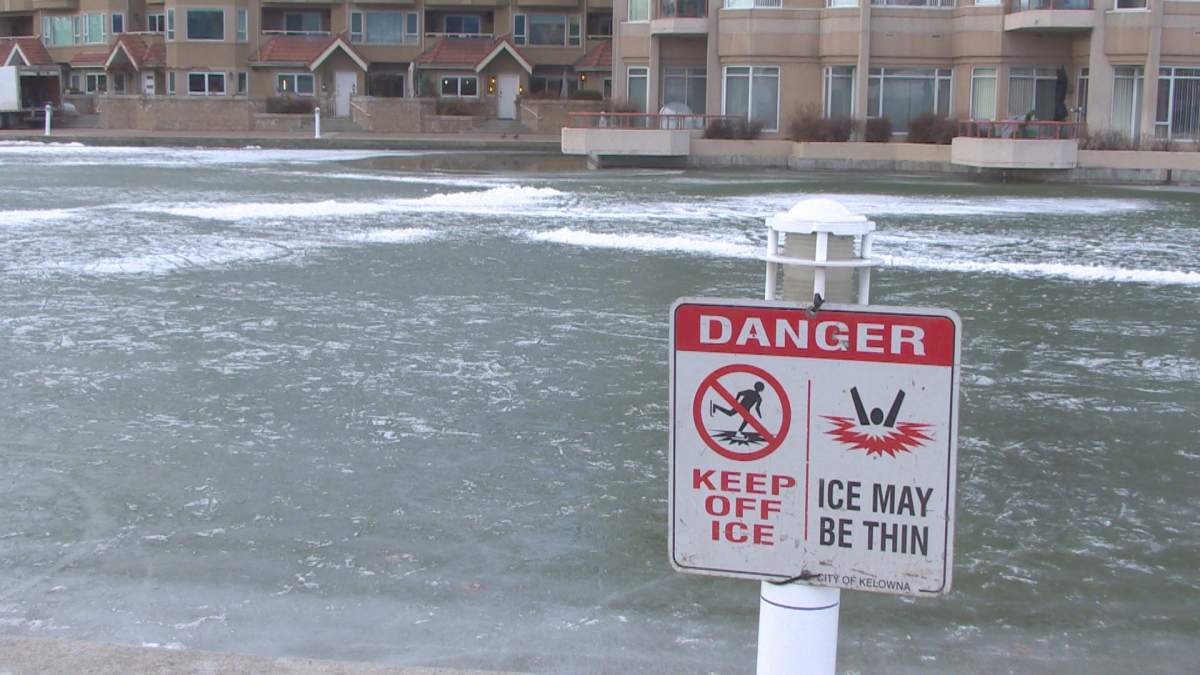After nearly two weeks of constant sub-zero temperatures, warmer weather is en route for B.C.’s Southern Interior.

From Salmon Arm to Osoyoos, Environment Canada is forecasting an afternoon high of 4C on Friday, followed by a high of 3C on Saturday, then 7 to 8 degrees Sunday to Tuesday.
With warm daily temperatures and overnight lows falling to around the freezing mark, the City of Kelowna is asking residents to stay off frozen ponds and waterways.
“In these final days of winter, the City of Kelowna is reminding residents to exercise caution around frozen ponds and other waterways, and to refrain from skating or walking on the surface ice,” the city said in a press release.
The city said park staff do not maintain or inspect ice surfaces on public waterways, adding there is no guarantee the ice is thick enough to support a person’s weight.

Get daily National news
“Pond ice may look thick enough and safe to skate on but, especially late in the season, thickness can change quickly and dramatically, creating potential for injury,” said the city.

It also said skating on the lagoon at Waterfront Park has been particularly popular in recent days, but that it’s also particularly dangerous.
“The lagoon has a current flowing through it, which makes ice thickness especially unpredictable,” said the city.
“It also has a lining between the water and the concrete below that could easily be torn by a skate and fixing that tear would be a considerable undertaking. For these reasons, the City discourages residents from skating on the lagoon.”
For more information on public skating and to book a skating time, click here.





Comments
Want to discuss? Please read our Commenting Policy first.